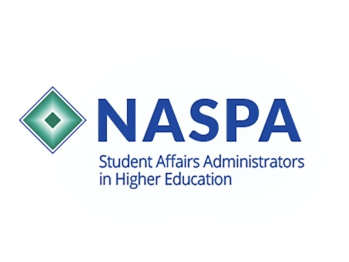NASPA First-generation Student Success Conference
Division/Group Events Student Success
June 27 - June 30, 2025 Denver, CO
Presented By

The NASPA First-generation Student Success Conference examines a breadth of topics critical to advancing the holistic outcomes of first-generation students. The conference program considers the vast intersectionality of first-generation students, the systemic and institutional barriers to success, evidence-based practices and approaches to student support and services, the role of assessment and evaluation, opportunities to build celebratory campus environments, and strategies for building networked campus approaches to scaling support.
Participants will have an opportunity to learn more about the Center for First-generation Student Success while engaging with practitioners, scholars, and advocates in multiple presentation formats, research discussions, and networking events.
For more information on the 2025 NASPA Conferences on Student Success in Higher Education, please visit this website.
Learning Outcomes
Understanding First-generation Student Intersecting Identities
-
Participants will learn about the lived experiences of first-generation students and their overlapping identities from institutional and national perspectives.
-
Participants will gain insights into the impacts of systemic inequities on first-generation students and develop strategies for addressing these barriers across their institution.
Designing Culturally Responsive Support and Celebrating the First-generation Identity
-
Participants will learn to create culturally responsive programs, services, and initiatives that align with the unique needs of first-generation students and confront barriers thwarting success.
-
Participants will implement strategies to foster a celebratory first-generation culture through engagement, recognition, and inclusive programming.
Enhancing Outcomes and Expanding Support Beyond Graduation
-
Participants will use current research and evaluation tools to enhance institutional first-generation initiatives, focusing on data-informed approaches to improve student outcomes.
-
Participants will uncover opportunities to expand post-completion supports, fostering gainful employment for first-generation graduates and professionals through tailored initiatives and partnerships.